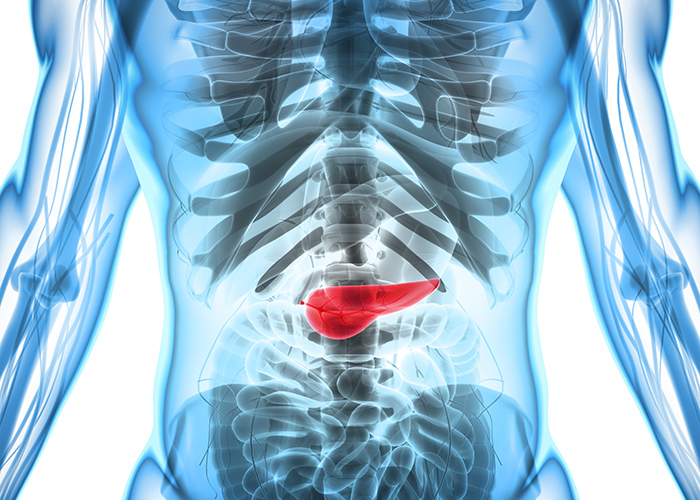What is Pancreatic Cancer?
 Pancreatic cancer is a disease in which malignant cells form in the pancreatic tissues. According to the Center for Disease Control and Prevention (CDC), pancreatic cancer is the 3rd most common cause of cancer-related deaths, and its incidence has been increasing over the last 15 years. By 2030 it is believed that pancreatic cancer will fall shortly behind lung cancer as the second highest cause of cancer deaths.
Pancreatic cancer is a disease in which malignant cells form in the pancreatic tissues. According to the Center for Disease Control and Prevention (CDC), pancreatic cancer is the 3rd most common cause of cancer-related deaths, and its incidence has been increasing over the last 15 years. By 2030 it is believed that pancreatic cancer will fall shortly behind lung cancer as the second highest cause of cancer deaths.
What Causes Pancreatic Cancer?
While there are many risks associated with developing pancreatic cancer, researchers don’t quite understand what causes these cancer cells to develop in the pancreas.
Risk factors for developing pancreatic cancer include:
- Smoking
- Diabetes
- Obesity
- Chronic pancreatitis
- Certain inherited conditions
What are the Symptoms of Pancreatic Cancer?
Early-stage pancreatic cancer can be difficult to detect because symptoms are rarely triggered until the cancer has advanced. As it grows, symptoms will begin to develop.
The symptoms will depend on the location of the cancer. If the tumor is in the body of the pancreas, you might experience belly or back pain and weight loss. Pancreatic cancer of the head of the pancreas tends to cause weight loss, belly or back pain, jaundice (yellow skin and eyes), dark urine, itching, or light-colored stool.
Unfortunately, by the time symptoms develop the cancer has probably grown outside of the pancreas.
What is the Treatment for Pancreatic Cancer?
Pancreatic cancer treatment depends on the stage of the cancer and how far it has spread. Early stages can be treated with surgery. When the tumor has spread beyond the pancreas, then surgery is not possible. Other treatment modalities such as chemotherapy and radiation therapy can extend survival.
Have questions about pancreatic cancer?
Schedule an AppointmentPrevention & Treatment
Endoscopic Ultrasound (EUS)
A procedure that examines your esophageal and stomach linings and the walls of the upper and lower gastrointestinal tract. The procedure is performed using an endoscope, which is a thin, flexible tube equipped with a tiny camera and ultrasound device that allow the physician to view any affected regions of your gastrointestinal tract and make a much more accurate diagnosis.
Learn MoreERCP
ERCP, or endoscopic retrograde cholangiopancreatography, is a test that combines the use of a flexible, lighted scope (endoscope) with X-ray pictures to examine the tubes that drain the liver, gallbladder, and pancreas.
Learn More